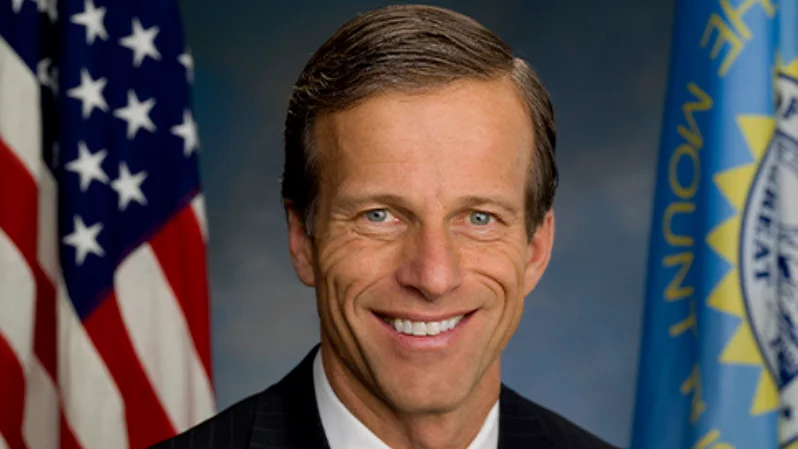Senator John Thune, US Senator for South Dakota | Official U.S. Senate headshot
Senator John Thune, US Senator for South Dakota | Official U.S. Senate headshot
U.S. Senate Majority Leader John Thune (R-S.D.) addressed the Senate floor today to defend the Republican-led reconciliation bill, focusing on its proposed changes to Medicaid. Thune argued that recent criticisms from Democrats misrepresent the intent and effects of the bill.
"Well, Mr. President, Democrats continue to melt down over the reconciliation bill that Republicans are getting ready to consider.
"And their statements continue to be heavy on the hysteria, and short on the facts.
"And nowhere is this more true than on the subject of the bill’s Medicaid provisions.
"To hear Democrats talk, you’d think Republicans were getting ready to rip Medicaid from the hands of needy children and pregnant women.
"And nothing, Mr. President, nothing could be further from the truth.
"And today I would like to take a few minutes to set the record straight – and highlight the facts on Republicans’ efforts to root out waste, fraud, and abuse from Medicaid and ensure that the focus of this program is on the people that it was designed to help."
Thune said that federal spending on Medicaid has increased by more than 50 percent between 2019 and 2023. He attributed much of this growth to expansions under Obamacare and policies enacted during President Biden’s administration. According to Thune, this expansion has put financial strain both on taxpayers and those most in need of Medicaid services by broadening eligibility beyond original intentions.
"Mr. President, like other federal entitlement programs, Medicaid is not on the soundest footing.
"Between Obamacare’s expansion of Medicaid to able-bodied adults at or above 138 percent of the federal poverty line and the Biden administration’s rules and waivers, Democrats have been growing Medicaid beyond its original scope for quite a while now.
"And federal Medicaid spending has soared.
"Between 2019 and 2023, Medicaid spending grew at more than 50 percent.
"And that kind of unsustainable growth, Mr. President, has consequences.
"Not just for taxpayers, who are on the hook for huge new amounts of money, but for the people most in need, who have to compete with a lot of new individuals for available resources."
Thune outlined several key reforms in the Republican proposal: removing noncitizens such as illegal immigrants from state rolls; instituting work requirements for able-bodied adults; overturning regulations he says make it difficult to remove ineligible individuals; and addressing what he described as abuse related to provider tax loopholes. He stated these steps are aimed at ensuring resources go only to those eligible under original program guidelines.
"We’re going to rein in federal spending to states that choose to direct scarce state dollars to illegal immigrants.
"We will be instituting basic, commonsense work requirements for able-bodied, working-age adults, who should not be relying on taxpayers for their health care unless they are doing their best to find and maintain a job or contribute to their communities.
"And we will be overturning Biden-era regulations that made it difficult to remove individuals who don’t qualify for the program."
Thune also referenced actions taken by some Democratic-led states such as California which have considered freezing enrollment or charging premiums for certain groups due financial pressures—an indication he said supports similar moves at a federal level.
"No less a Democrat state than California is looking to freeze the enrollment of illegal immigrants in its Medicaid program and charge premiums for illegal immigrants already enrolled.
"Why?
"Because the state can no longer afford to cover these individuals and maintain its other obligations."
The speech concluded with Thune challenging his colleagues across party lines about specific elements they might oppose within these reforms:
"We’ve heard a lot of bluster from Democrats about how this bill will cost enrollment and cost lives, but we’ve heard very little from them on the actual measures included in the bill."
He thanked Chairman Crapo along with members of Senate Finance Committee for their contributions before expressing his intention move forward with legislation soon:
"I want to thank Chairman Crapo and members of the Finance Committee for their work on the Medicaid provisions of our bill.
"And Mr. President, I look forward to taking up these provisions in the very near future as part of our final legislation."



 Alerts Sign-up
Alerts Sign-up